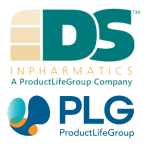Particularly when it comes to CMC-focused discussions, FDA Meetings are not what people may think.
Beliefs that surround a CMC compliance strategy run the gamut from thinking that manufacturing process for preparing and controlling clinical product for earlier phases are also considered good enough to go forward into later-stage clinical trials and even commercial manufacturing, to the worrying that the FDA may want a lot more to be done than is currently scheduled.
Seven common opinions about formal meetings between the FDA and Sponsors or Applicants of PDUFA Products regarding CMC compliance are outlined below.
No. 1: FDA meetings can be a gamble. Corporate-determined marketing submission date must not be affected
Here the house is on the Sponsor’s side, unlike gambling. Sponsors must understand that the FDA is a partner, and the process is not about believing that it knows more about its process and product than the FDA.
Gambling obviously works differently as the house loses when the individual wins, and so the house ensures that the odds are stacked in its favor. Attending these meetings takes away the unknown whether the feedback is positive or negative.

Image Credit: DSI, a PLG Company
No matter if the feedback is positive or negative, it’s a good thing as the sponsor is now able to deal with the issue(s) that received negative feedback prior to the next meeting or submission.
It can only be a good thing for a Sponsor to ensure that the reviewer openly understands the science behind the product and manufacturing process, as the drug product’s fate is ultimately controlled by the FDA. For instance, when the correct data is shared, not only does the Sponsor and the FDA win, but so does the patient.
No. 2: If FDA meetings are such a great idea, Why are so many marketing applications approved without a CMC-focused discussion?
One problem with this view is that there are no guarantees for the majority of things in life. According to sound phase-appropriate rules, the majority of people who develop their product will produce data they would not have had otherwise.
Meetings between the FDA and the Sponsor can help to ensure that no major CMC strategic surprises could delay the marketing application’s review and approval significantly.
No. 3: All you need to do is find the next big orphan drug or gain breakthrough designation status and hold on
This view does not address the CMC compliance strategy. Sponsors devote much expense, expertise, and time to understanding how to administer the drug product and the science of how the drug product works in humans.
Yet, every product ultimately needs CMC compliance data to show the science of how the drug product can be manufactured consistently in order to gain approval. A development strategy that only combats the clinical problems is only half a strategy
No. 4: You can’t always count on timing
Sponsors have to be selective in how limited resources, time, and money are invested. As understanding the science does not come cheap, investments must be made wisely while keeping in mind the reality that only a small percentage of drugs make it into the marketplace.
The aim is not just to generate volumes of scientific data but to increase the level of manufacturing process knowledge and understanding.
No. 5: FDA meetings can sometimes involve luck
The ‘it depends’ response is sometimes the argument for pure unpredictability made by some brilliant regulatory consultants. No amount of experience, strategy management techniques and guidance interpretation would improve an interaction If meetings were all about luck.
Almost all experienced consultants can look back at mistakes made 15 years ago that they would not make today. There is nothing to learn in a luck-based venture like a lottery, but there is a learning curve with FDA Meetings.
Any key issue will require time and resources to correct if the FDA believes the Sponsors’ CMC regulatory compliance strategy is not sufficient or practical for that matter.
Some of these key issues are qualification of impurities, starting material designation, approach to specifications, identification of any other CMC issues, including process and manufacturing site changes.
The FDA expects thoughtful consideration and a scientifically justified engagement; it does not expect a company to agree with them in every instance.
No. 6: Waiting until the last minute to have a meeting can have many advantages
Nowadays, the Sponsor has one crucial advantage. It possesses information that is much more widely available today than it was before the internet.
To quickly fix everything late in the game, though (make the process more robust and commercial) is often due to discovering holes in the scientific understanding of the manufacturing and control of the process.
It is thought that you are probably not ready if you have to ask, ‘Can we submit updates to the application after we submit the application?’. Sponsors should let manufacturing and product knowledge drive the submission date, not business dates or marketing desires.
No. 7: The FDA is always right
This has its roots in the time-honored advice not to fight the trend. That is usually good advice.
Without data, the FDA can be temporarily blind. A CMC perspective aims to provide enough information to enable the respective reviewer to establish whether the techniques utilized in manufacturing the drug and the controls utilized to maintain its quality are adequate and appropriate. Education starts early.
In development, manufacturing process alterations are inevitable and, in certain instances, even wanted. A careful assessment of all foreseeable consequences for the product should be performed in order to identify the effect of any manufacturing process change.
Appropriate criteria can be determined in consideration of this evaluation. They should be discussed upfront, e.g., characterization, in-process control, routine batch analyses, process validation and/or evaluation data and stability.
Conclusion
During the development of a drug product, dialogue with the FDA is helpful as ultimately, FDA approval is needed before commercialization. The formal FDA meeting process is one of the mechanisms for applicants to request feedback from the FDA.
In this process, a person or organization anticipating the need to make a future submission to the FDA (e.g., IND, NDA/BLA) can make a written request to obtain feedback before, or during, preparation of the submission.
Meetings help to make sure that no major CMC strategic surprises could significantly delay the marketing application’s review and approval.
This Standard Operating Policy and Procedure (SOPP) serves as a guide for the Center for Biologics Evaluation and Research (CBER) staff for scheduling and conducting regulatory meetings between individuals in CBER and representatives of the regulated industry (including sponsors/applicants of user fee-related products) and/or individual sponsor-investigators to address issues regarding product development.
About DS InPharmatics 
DS InPharmatics (DSI) provides regulatory, technical, and project management consulting services to healthcare product companies that manufacture and/or market pharmaceuticals, biopharmaceuticals, and cellular and gene therapy products.
Since 2007 we have provided our clients with innovative strategies and exceptional quality work products intended to enhance product development, approval, and marketing presence. Whether advocating CMC strategy, directing CMC operations or developing CMC submission content that represent the best interests of emerging biotech, we focus on the critical CMC issues and build programs that enhance development.
In April 2021 we were thrilled to announce that DSI has just become part of ProductLife Group.
French-headquartered ProductLife Group (PLG) is well-known in the Life Sciences market. It has a track record of successfully managing global outsourcing programs and insourcing services for its international client base. The company is on a mission to help transform human health outcomes by optimizing regulatory affairs, safety & vigilance, and quality compliance for life sciences organizations worldwide.
The fit between our two organizations could not be more perfect. We will complement PLG's growing biotech services portfolio. US biotech sponsors recognize DSI as a leader in consulting for go-to-market strategies and RA pre-market consulting. At the same time, PLG has a strong reputation for managing end-to-end outsourcing of regulatory affairs and pharmacovigilance activities worldwide.
Our merger with PLG will harness our combined strengths, offering our clients on both sides of the Atlantic support with their developed drugs approvals and post-approvals compliance, plus advisory services on the best market strategies to deliver a rapid ROI on their development. Together we will offer our clients increased pharmacovigilance capabilities - including a QPPV; pharmacovigilance consulting; and a fully validated safety database - as well as complementary toxicology-related services; RIM/electronic document management services; and support for medical device regulatory requirements.
We see enormous potential in this new chapter for DSI and you, our clients. As a PLG company, we have the opportunity to become part of a global force in life sciences regulatory and compliance solutions and services, and we're incredibly excited to add our momentum to that effort.
Sponsored Content Policy: News-Medical.net publishes articles and related content that may be derived from sources where we have existing commercial relationships, provided such content adds value to the core editorial ethos of News-Medical.Net which is to educate and inform site visitors interested in medical research, science, medical devices and treatments.